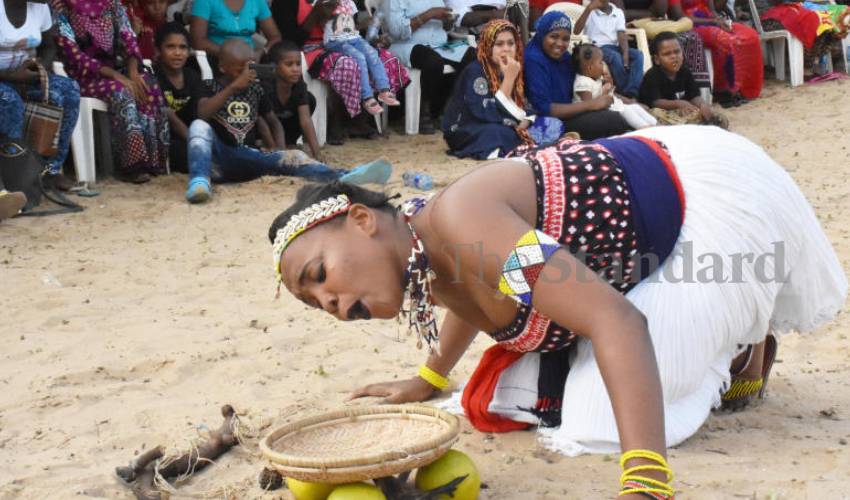×
The Standard e-Paper
Fearless, Trusted News

Mauna Keah Chibopo, wearing a Mijikenda traditional dress known as 'hando', at Rabai in Kilifi County. [Omondi Onyango, Standard]
Mauna Chibogo is regarded as a hando queen in her village of Ruruma in Rabai Constituency, Kilifi County.